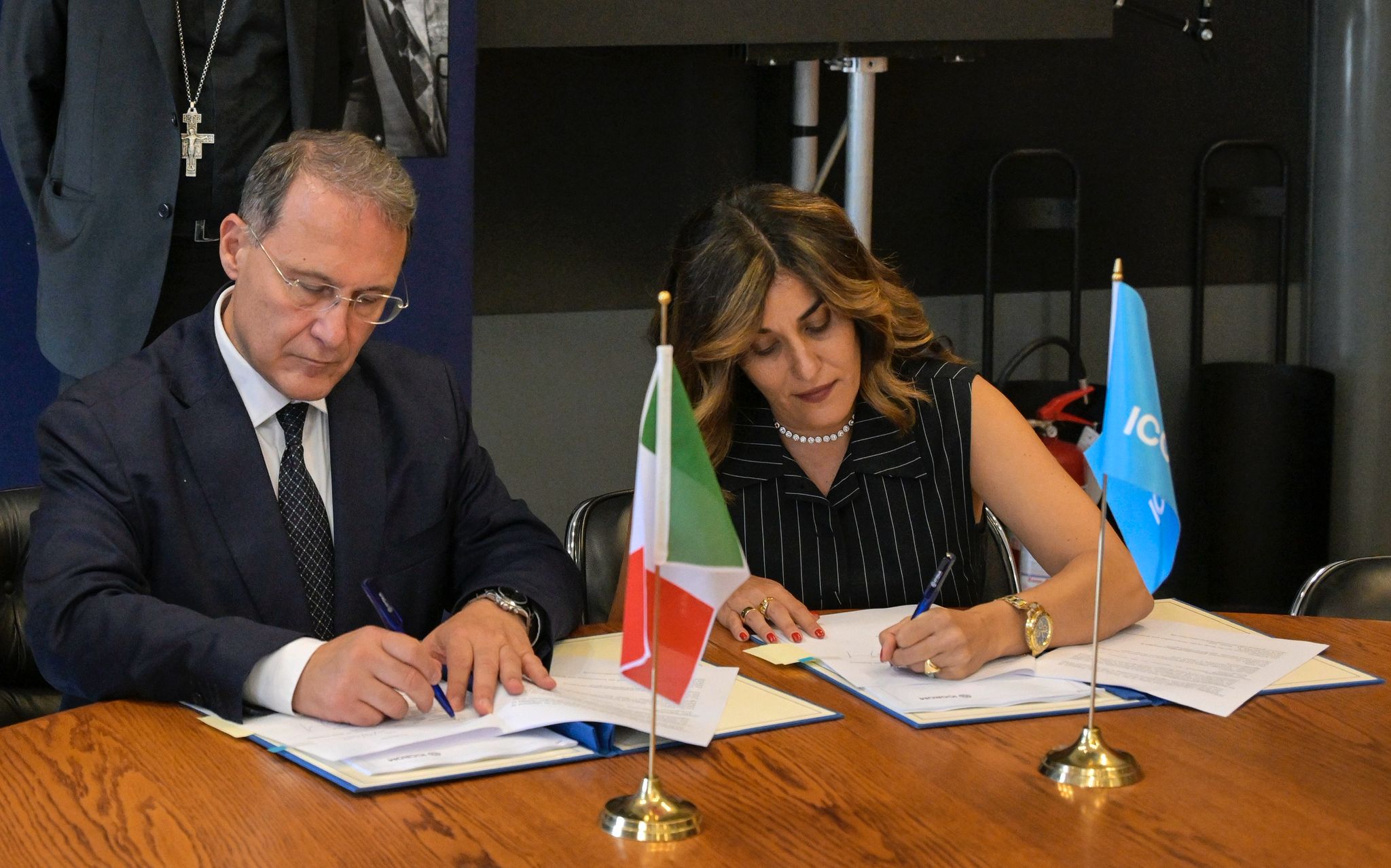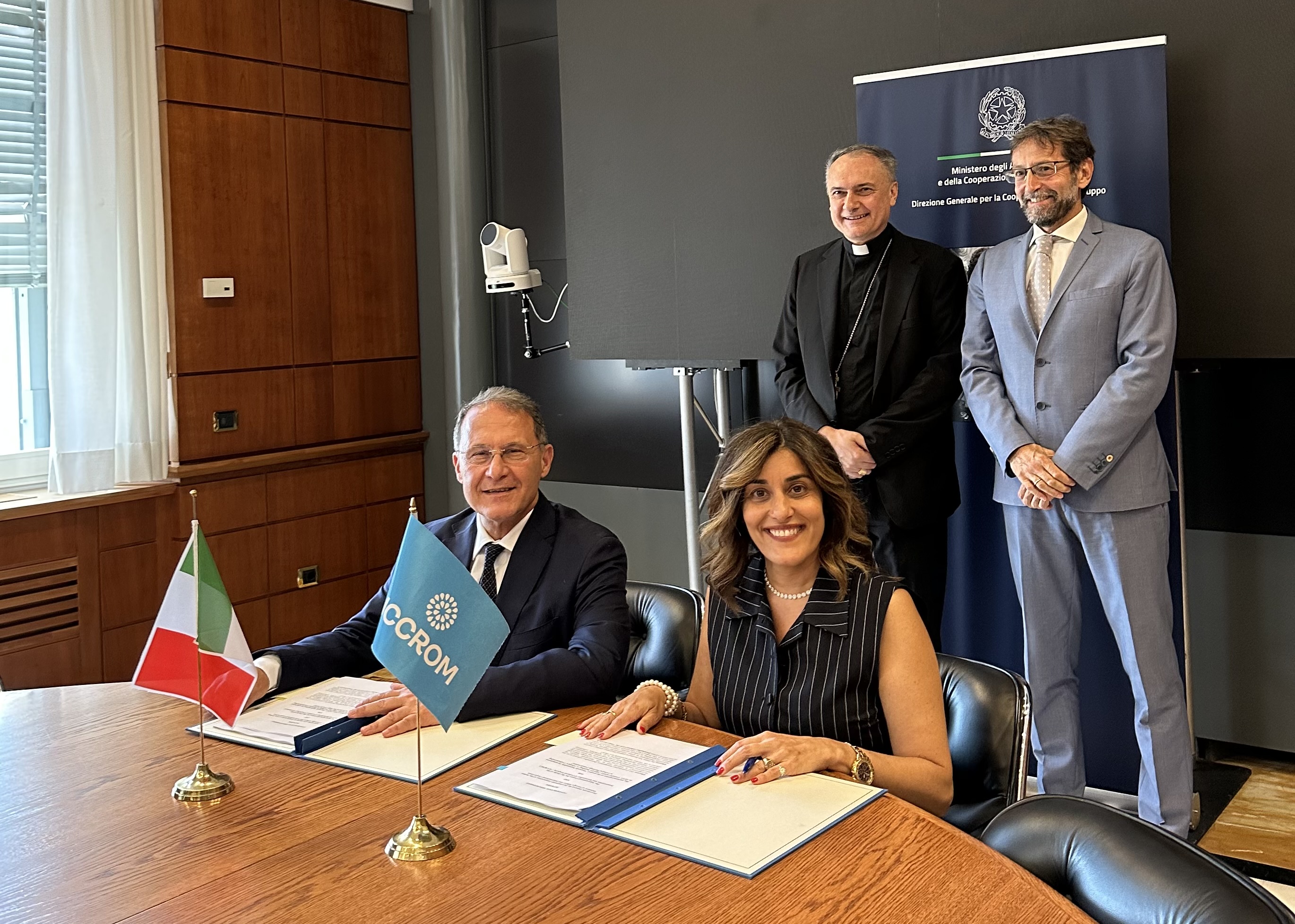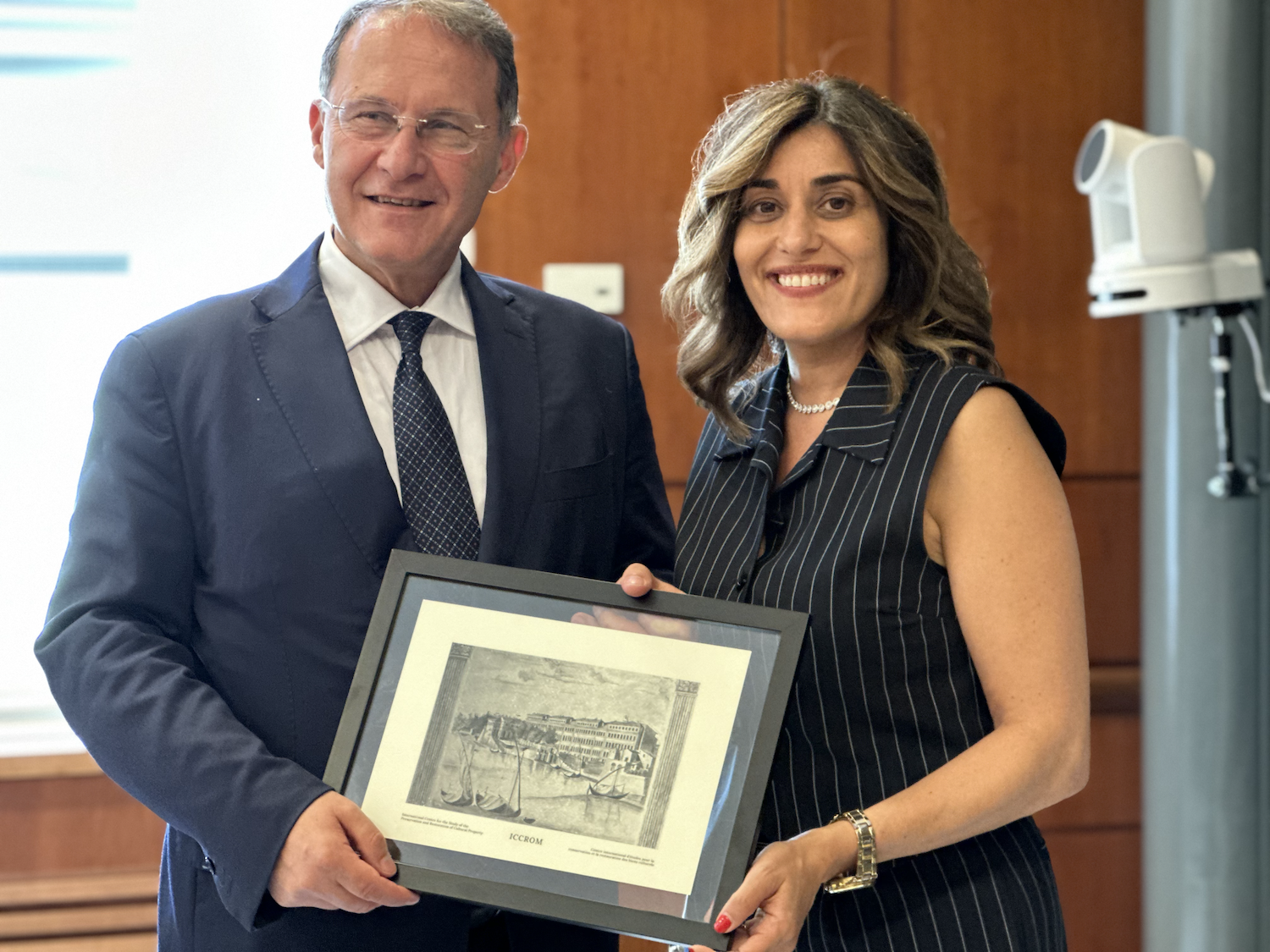Agreement signed to empower a new generation of Africans with skills to conserve heritage and catalyze long-term development
Rome – On 25 July 2025, ICCROM’s Director-General, Aruna Francesca Maria Gujral and Italian Deputy Minister of Foreign Affairs and International Cooperation, Edmondo Cirielli, signed a landmark Agreement to jointly implement a transformative new project: “Towards Sustainable Development in Africa: Transformative Capacity Building to Advance Craftsmanship in Cultural Heritage Conservation.”
Backed by a generous €6 million grant from the Italian Government through the Directorate General for Development Cooperation of the Italian Ministry of Foreign Affairs and International Cooperation, this three-year Programme aims to equip a new generation of African artisans with the skills and knowledge needed to promote and preserve the continent's rich and diverse heritage and create socio-economic opportunities in this field. Implemented in close partnership with the Fabbrica di San Pietro in the Vatican, the Programme draws on centuries-long leadership in conservation.
His Eminence Cardinal Mauro Gambetti, President of the Fabbrica di San Pietro, honoured the occasion with his presence to share greetings and a blessing over the ceremony.
The catalytic project targets young artisans in Côte d’Ivoire, Egypt, Kenya and Tunisia, and is designed to have a multiplier effect through a Training-of-Trainers model, which will propel wide-scale upskilling and formalization of craft professions throughout Africa. At least 540 artisans across these countries are expected to be trained in traditional and modern craft techniques – including stone, woodworking, mosaics, plaster, and metal.
“We’ve seen how cultural heritage, when placed in the hands of communities, can foster social cohesion, identity, and dialogue – especially among youth. This initiative builds on our vision that promoting human capital, rooted in cultural legacy and local traditions, is a strategic long-term investment. Today we mark a powerful alliance: Italy’s leadership in conservation, the excellence of the Fabbrica di San Pietro, and ICCROM’s global experience coming together to shape concrete opportunities and socio-economic growth towards transformative change,” stated ICCROM’s Director-General.
“Investing in craft training and cultural heritage conservation means promoting sustainable development and creating tangible opportunities for young people,” stated Deputy Minister Cirielli. He explained that the aim of the agreement is to enhance the skills of young African artisans and support the transfer of knowledge essential for the preservation of cultural heritage sites across the continent.
The Programme aligns with Italy’s Mattei Plan for Africa, which promotes sustainable, mutually beneficial partnerships between Italy and African countries. ICCROM strongly supports this vision, which reflects the Organization’s belief that sustainable development in Africa must be rooted in fair and respectful partnerships that value human capital, local expertise, and cultural identity.
The Fabbrica di San Pietro, known globally for its excellence in craft training, will host a cohort of African artisans for an intensive six-month residency. To foster intercultural exchange, instructors will also travel to Africa to work with partner institutions. They will learn about local needs, support development of a heritage toolkit, and delve into indigenous knowledge shared by African students.
After graduating the training at the Fabbrica di San Pietro, the certified artisans will transfer the skills acquired to a larger number of artisans in their communities in Africa through capacity building with a catalytic effect. By professionalizing artisanal work and embedding conservation within local economies, the Programme will generate youth economic empowerment and community development.
This is a significant step forward in the strategic partnership between Italy and ICCROM, highlighting our shared commitment to making cultural heritage a driver of lasting change for future generations. Our heritage is our future.



